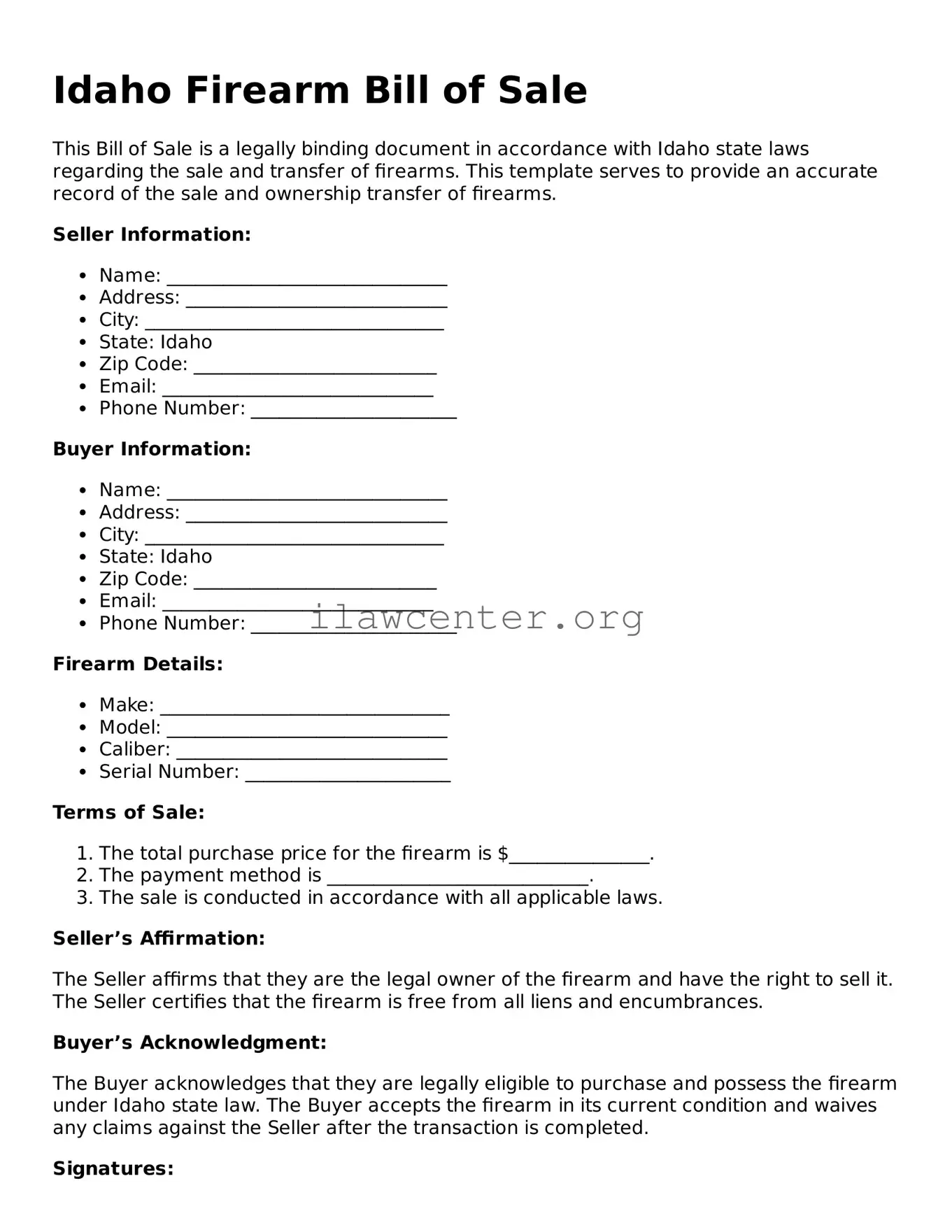What is an Idaho Firearm Bill of Sale form?
The Idaho Firearm Bill of Sale form is a document that serves as proof of a sale or transfer of ownership of a firearm between parties in Idaho. This form captures essential information about the transaction, such as the buyer's and seller's details, the firearm's information, and the date of the transfer. Having this form helps protect both parties by providing a clear record of the sale, which can be important for legal purposes.
Is a Bill of Sale required for private firearm sales in Idaho?
While Idaho does not legally require a Bill of Sale for private firearm sales, it is highly recommended. Even though a written document is not mandated by law, it protects both the buyer and the seller. A Bill of Sale can help prevent misunderstandings regarding ownership and provide evidence of the transaction in case any future legal issues arise.
What information should be included in the Bill of Sale?
When creating a Bill of Sale for a firearm in Idaho, several key pieces of information are necessary. The form should include the names and addresses of both the buyer and the seller. It should describe the firearm being transferred, including its make, model, caliber, and serial number. Additionally, the date of the sale and the purchase price should be recorded. Both parties should sign and date the document to finalize the sale.
Do I need to have the Bill of Sale notarized?
In Idaho, notarization of the Bill of Sale is not required. However, having it notarized can offer an additional layer of security and verification for both parties involved. A notarized Bill of Sale may be beneficial if you ever need to prove the transfer of ownership in the future, especially if disputes arise or if legal questions about the firearm's ownership come into play.
Can the Bill of Sale be used as a firearm registration?
No, a Bill of Sale does not serve as a firearm registration. Idaho does not have a state registration system for firearms. Therefore, the Bill of Sale is simply a record of the transaction itself, not a form of official registration. It is important for gun owners to understand that while the Bill of Sale provides proof of transfer, the state does not keep a central database of firearm owners.
What should I do if the buyer refuses to sign the Bill of Sale?
If the buyer refuses to sign the Bill of Sale, you may want to reconsider the sale. It’s essential for both parties to acknowledge and agree to the terms of the transaction formally. If the buyer is uncertain or hesitant, communicate openly about their concerns. If necessary, you could offer to wait until they feel comfortable proceeding. If the buyer still refuses to sign for any reason, it may be wise to seek another buyer who understands the importance of documenting the sale properly.
